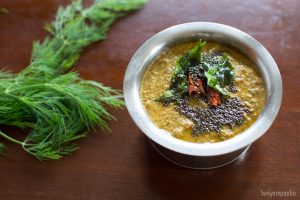Dill belongs to the Apiaceae family, which also includes other popular herbs such as celery, parsley, and fennel. Here are some of the nutrition and health benefits of dill:
- Rich in nutrients: Dill is low in calories but rich in essential vitamins and minerals, including vitamin C, vitamin A, calcium, and iron.
- May aid digestion: Dill has been traditionally used as a digestive aid and may help to reduce digestive problems such as bloating, gas, and indigestion.
- May have antibacterial properties: Dill has been shown to have antibacterial properties against various types of bacteria, which may help to protect against infections.
- May have anti-inflammatory properties: Some studies have found that dill may have anti-inflammatory properties, which may help to reduce inflammation in the body.
- May help to reduce menstrual cramps: Dill has been traditionally used to help reduce menstrual cramps, and some studies have found that it may help to reduce the severity of menstrual cramps.
- May help to reduce bad breath: Dill has a fresh, minty flavor and may help to reduce bad breath when used as a natural breath freshener.
- May help to lower cholesterol: Some studies have found that dill may help to lower cholesterol levels, which can reduce the risk of heart disease.
Overall, dill is a nutritious herb with several potential health benefits. It can be used in a variety of dishes, such as soups, salads, and sauces, to add flavor and nutrition to your meals.
Here is a nutrition data table for 1 cup (9g) of chopped dill:
| Nutrient | Amount |
|---|---|
| Calories | 4 |
| Protein | 0.4 g |
| Fat | 0.1 g |
| Carbohydrates | 0.6 g |
| Fiber | 0.3 g |
| Vitamin C | 3.3 mg |
| Vitamin A | 217 IU |
| Calcium | 20 mg |
| Iron | 0.6 mg |
| Magnesium | 4 mg |
| Potassium | 80 mg |
Note: The values provided in this table are based on USDA’s National Nutrient Database for Standard Reference, Release 28 (2015). The nutritional content may vary depending on the variety of dill and growing conditions.



